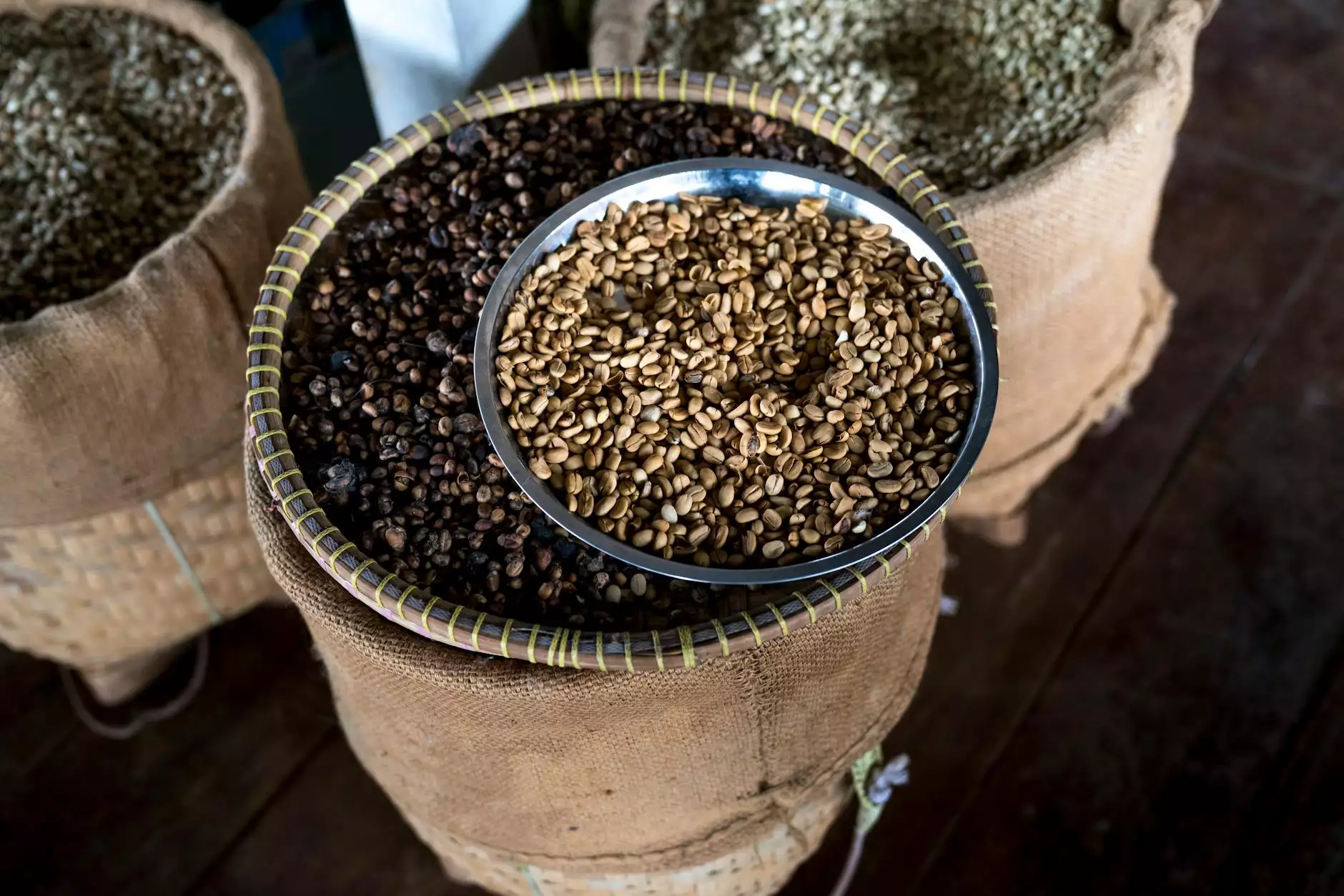Using Cornmeal to Kill Ants: A Natural Solution for Ant Control

Ants are one of the most common pests found in households and gardens. While they play a vital role in the ecosystem, they can also become a nuisance when they invade our spaces in search of food. If you're looking for a natural, effective, and inexpensive method to control these pesky insects, using cornmeal to kill ants might be the solution you need. In this article, we will explore the science behind this method, its benefits, and practical tips for implementation.
Understanding Ant Behavior
Before delving into how cornmeal can be used as a pest control solution, it is essential to understand ant behavior. Ants are social insects that live in colonies and are constantly searching for food, water, and shelter. Their keen sense of smell leads them to discover food sources, including those found within your home.
Once a scout ant finds food, it returns to the colony, leaving a pheromone trail for other ants to follow. This process can quickly lead to an ant invasion in your kitchen or pantry. Understanding this behavior is crucial for effective control methods.
What is Cornmeal?
Cornmeal is a fine flour made from dried corn. It is commonly used in baking and cooking, offering a rich source of carbohydrates. What many people may not realize is that cornmeal can also serve as a natural insecticide, particularly for ants.
While cornmeal itself is not toxic, its properties can lead to ant demise in a manner that is safe for environments where children and pets are present. When ants consume cornmeal, they cannot digest it properly, and it eventually leads to their death. This makes it a preferred choice for those seeking organic pest control methods.
How Does Cornmeal Kill Ants?
The key to understanding how cornmeal kills ants lies in its texture and composition. Ants are attracted to the smell of cornmeal and will carry it back to their colonies. However, unlike many other food sources, cornmeal does not provide the nourishment they need, which can lead to significant disruption within the colony.
When ants consume cornmeal, it can cause dehydration and gastrointestinal distress, effectively killing them over time. This method is not instantaneous, as it relies on the ants to carry the cornmeal back to the colony where the real impact occurs.
Benefits of Using Cornmeal for Ant Control
Utilizing cornmeal for ant control comes with a host of benefits that align with eco-friendly pest management strategies. Here are some of the most notable advantages:
- Non-toxic solution: Safe for homes with children and pets, avoiding harsh chemicals.
- Easy to use: Requires no specialized knowledge or equipment to implement.
- Cost-effective: Cornmeal is inexpensive and readily available at grocery stores.
- Environmentally friendly: Biodegradable and does not harm beneficial insects.
How to Use Cornmeal to Kill Ants
Now that you understand the science and benefits behind using cornmeal to kill ants, it's time to discuss how to do it effectively. Follow these steps for the best results:
Step 1: Identify Ant Trails
Before applying cornmeal, observe and track the ant trails in your home. Understanding where the ants are coming from and going to will allow you to target your treatment effectively. Look for signs of ant activity in areas like:
- Your kitchen, particularly near food sources.
- Pantry shelves and cabinets.
- Entry points such as doorways and windows.
Step 2: Prepare the Cornmeal Bait
To create a cornmeal bait that is attractive to ants, you can mix cornmeal with other ingredients. Here are a few options:
- Cornmeal and Sugar: Mix equal parts of cornmeal and sugar to lure ants effectively.
- Cornmeal and Borax: For a more lethal bait, combine cornmeal with borax (a natural mineral) in a 3:1 ratio (cornmeal to borax). This will increase its toxicity while remaining non-toxic to pets if placed cautiously.
Step 3: Place the Bait Strategically
Once your bait mixture is ready, it's time to place it in areas where you’ve observed ant activity. Use small dishes, caps, or even pieces of paper to contain the bait. Remember to:
- Place bait near ant trails and suspected nesting areas.
- Avoid placing bait in high-traffic areas to prevent pets and children from accessing it.
- Check the bait every few days and replenish it as needed.
Step 4: Monitor and Adjust
As ants consume the cornmeal, you may see a reduction in their activity. Monitor the bait stations for effectiveness and make adjustments as necessary. If the ant population persists, consider changing bait locations or trying different mixtures until you find what works.
Combining Cornmeal with Other Natural Solutions
While cornmeal is effective on its own, it can be beneficial to combine it with other natural solutions to enhance your ant control efforts. Here are a few complementary approaches:
- Essential Oils: Essential oils like peppermint, tea tree, and citrus oils can deter ants due to their strong scents. Create a spray by mixing a few drops of these oils with water and spraying around entry points.
- Vinegar: A solution of vinegar and water can disrupt the ant pheromone trails, confusing ants and deterring them from returning.
- Diatomaceous Earth: Sprinkling food-grade diatomaceous earth around ant trails can create a barrier that affects their exoskeletons.
Long-term Prevention Strategies
While using cornmeal to kill ants is a great short-term solution, implementing long-term prevention strategies is crucial to ensure these pests don’t return. Consider the following tips:
- Seal Entry Points: Inspect your home for gaps or cracks and seal them appropriately to deny ants entry.
- Store Food Properly: Use airtight containers for food storage to eliminate food sources that attract ants.
- Maintain Cleanliness: Regularly clean your kitchen and eating areas to remove crumbs and access points for ants.
- Monitor for Moisture: Fix leaks and damp areas that can attract ants in search of water.
Conclusion
Combining the practical knowledge of ants' behavior with the natural efficacy of cornmeal offers a unique solution for anyone dealing with unwanted ant invasions. By applying the strategies outlined in this article, you can implement a safe, effective, and environmentally friendly approach to pest control in your home.
Using cornmeal to kill ants not only provides a means to fight these pests but also aligns with sustainable practices that respect our shared environment. Whether you explore the combination of cornmeal with other natural deterrents or focus solely on its usage, you’re well on your way to maintaining a pest-free home.
Additional Resources
For more information and resources on organic pest control, visit Friendly Organics Canada. They offer a variety of products and solutions for health-conscious consumers looking to maintain clean and pest-free environments.









